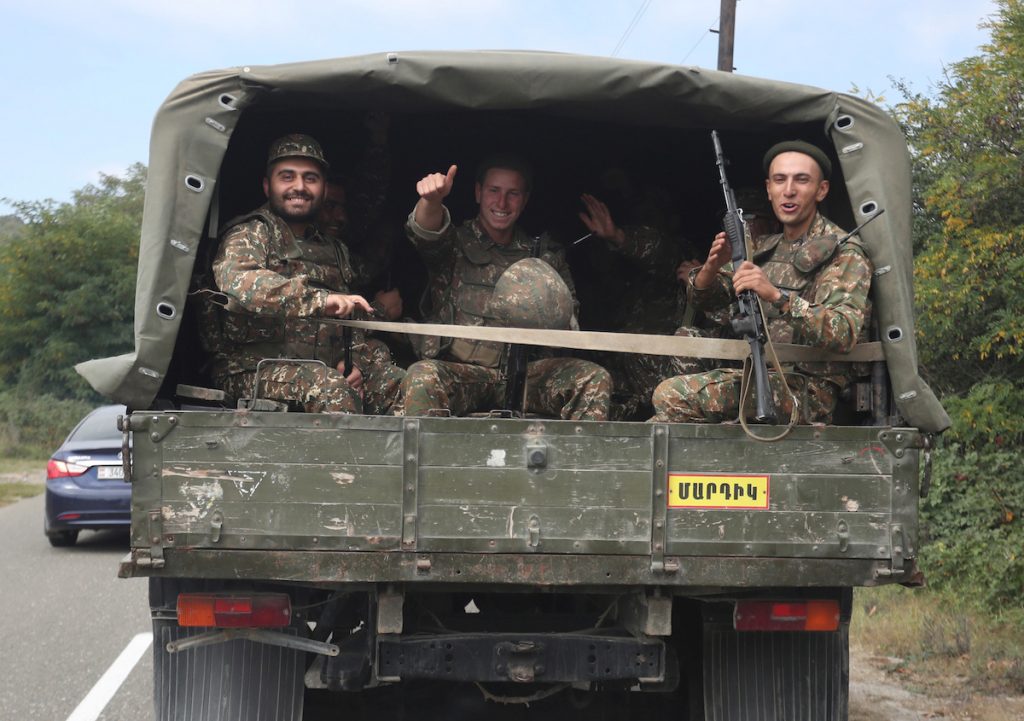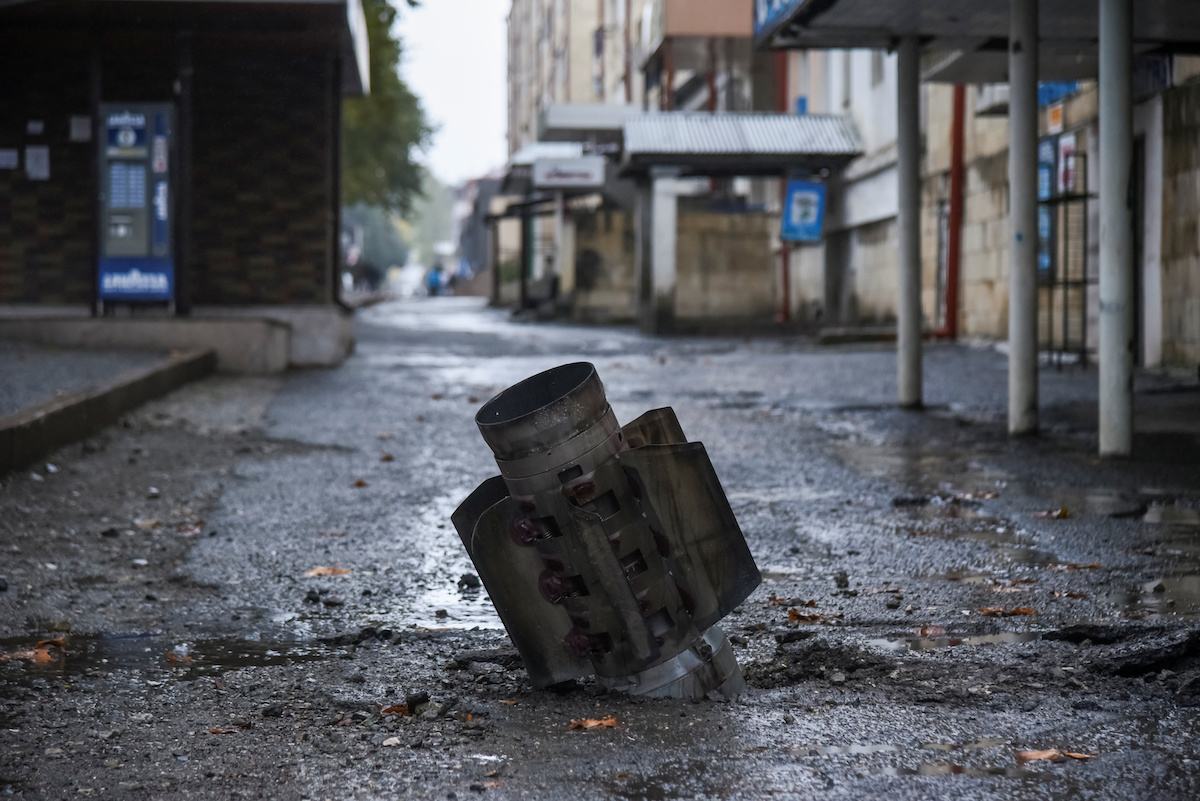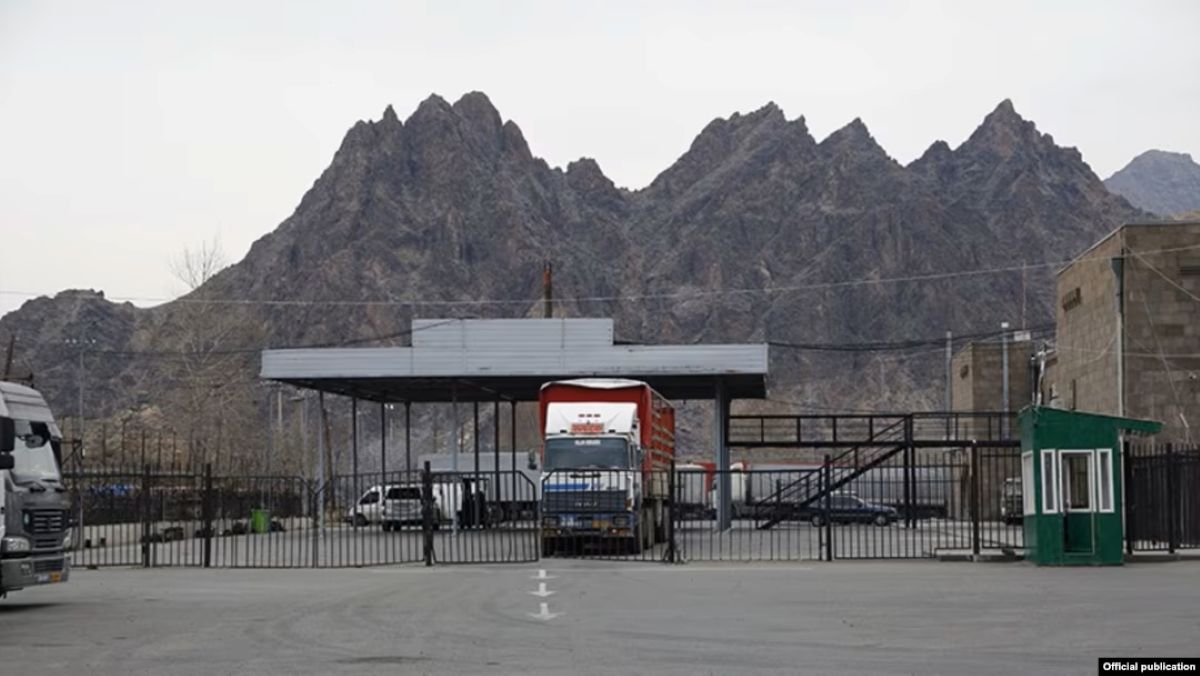Opinion: Russian "corridor" through Georgia - how is Georgia threatened by the conflict in Karabakh
The development of a military conflict in Nagorno-Karabakh may lead to the fact that Russia and Turkey directly interfere in it. In this case, Russia may try to break through a “corridor” through Georgia for the introduction of additional troops into Armenia, as well as take control of the Javakheti region inhabited by Armenians, conjectures Georgian journalist and military observer Temur Kighuradze.
Right now, Georgia is officially neutral in the conflict and appeals to both sides to cease fire and start peace talks, using Tbilisi as a meeting spot.
But with no peace talks in sight, let’s say that Azerbaijan’s response on the Armenian attack on Ganja would be a confirmed and undeniable assault on Armenia proper. Let’s say Armenia gets their hands on believable evidence of Turkey’s involvement in the Second Karabakh War. Russia launches CSTO protocols and officially backs Armenia in the conflict providing air support and, eventually, troops.
• Military experts from Armenia and Azerbaijan question official casualty figures
Russia’s position is clear – it needs to protect its ally and strategic interests – the South Caucasus railway, operated by Russia, energy and mining companies, as well as the Armenian population, many of whom have double Armenian and Russian citizenship.
Armenia is effectively an isolated country, surrounded by its historical adversaries – Turkey and Azerbaijan with a short stripe of Iranian border and the main supply line – Georgian border. Russia will not be able to supply its bases and military operations in Armenia, as Georgia strictly forbids any transit of Russian military cargo through Georgia as well as any military cargo to Armenia and Azerbaijan. The air route through Iran, which us currently used to supply Russian military bases in Armenia, is too long, too slow and too expensive. Russia will need a secure and reliable supply line, so making one through Georgia is Moscow’s best bet.

That’s where it goes wrong for Georgia. The supply route to Russian bases in Armenia will most likely come through Georgian breakaway region of South Ossetia, that has a strong Russian military presence and is directly linked to Russian border. The route from South Ossetia to Armenia may lay through Tbilisi or, alternatively, through Akhalkalaki and the whole Samtskhe-Javakheti region, a Southern Georgian territory with predominant Armenian population. As taking the nation’s capital seems like a very troublesome and costly operation, the alternative route is most likely to be chosen.
This region has already seen some instability and rallies in support of Armenia in the war. With the increased Russian interest to this region, might ignite the tensions in the region, use the situation to start or stage riots or clashes between local Armenian and Azeri population from neighbouring communities.
Then two scenarios can easily be used:
Samtskhe-Javakheti region proclaims independence from Georgia, establishes a “People’s republic’’, accusing Georgia of oppressing the local population, its language and culture and supporting Turkey and Azerbaijan (Georgia’s largest trade partners) in the war. Russia backs the claim announcing it is going to save the region from notorious “Georgian fascists and their Westren and Turkish puppeteers’’, and protect Russian citizens in the region, as a decent part of Javakheti Armenian population has double Georgian-Russian citizenship or even triple – Georgian-Armenian-Russian one.
Russia accuses Georgia in the support of terrorism (alike similar accusations during the First and the Second Chechen wars and following bombing of Georgian Pankisi Gorge by Russia in 2002), blaming Tbilisi for providing a safe route to transport Turkey-backed Syrian rebels through Georgia to the frontline. Those allegations have already been made and the Head of Georgian State Security Service had to officially deny it.
Russian troops, using South Ossetia as a base quickly conduct an “anti-terrorist operation” to secure the Turkish border in Samtskhe-Javakheti and cut two main roads linking Western and Eastern Georgia. Russian troops can even easily recapture old Soviet base in Akhalkalaki, a historical location used as a stronghold in Russo-Turkish wars in the 19th century and continuously used in anticipation of Turkish threat throughout the Cold War. As soon as the main highways are secured, the road to Armenia is open.
What can follow those actions and will South Caucasus even exist in its modern shape and borders can be open to any interpretations, but none of them are good for us or any other nation in the region. Karabakh could become a new Sarajevo, igniting a spark, that will light a huge fire, and countless bodies of soldiers and civilians alike will keep it burning. We need to stop this madness.



















